Nearly one million people have died from overdoses since 1999, that’s around the same population size as San Jose, California, the 10th most populous city in the US. Losing the entire population of a city over nearly a decade is almost unimaginable, but it does make it clear that the drug epidemic in the US is a matter of big concern.
Learning about the signs of drug abuse can help us be of assistance to those close to us who may be silently suffering from substance abuse. Drugs are still, to a great degree, a matter of taboo. It’s almost inherently natural for addicts to hide their consumption habits until they become too heavy for them to bear.
If you have been wondering – is my loved one abusing drugs? Then there are the signs that you should look out for.
Signs That Someone Is Abusing Drugs
Addiction is non-discriminatory, it affects people from all walks of life, and sometimes it affects those close to us, like a child, a friend, or even a spouse. Understanding the signs of addiction and knowing how to extend a helping hand when the signs show up can quite literally be the difference between life and death.
If you’re worried that someone you love is using drugs and needs treatment, then there are a few warning signs that you should look out for.
Addiction signs are split into three main categories:
- Physical signs of drug abuse
- Behavioral signs of drug abuse
- Psychological signs of drug abuse
It’s important to note that different drugs will have different effects on a person; however, in this article, we will cover common side effects from different drug categories.
Physical Signs That Someone is Abusing Drugs
As the title suggests, physical signs can be observed in the body. These may be more noticeable while a person is using drugs, however, they are still present after they’ve sobered up.
Common physical signs that someone is abusing drugs includes:
- Red or irritated eyes
- Dilated pupils
- Tremors or seizures
- Quick unexplained weight changes
- Extreme lethargy
- Strange odors on clothes like chemicals or smoke
- Jaw clenching
- Irregular sleep patterns
- Markings or bruising on the skin
- Being too hot or too cold
- Burn marks in fingers
- Skin peeling in the palm of the hand
- Getting sick often
- Having a heavily congested nose often
Behavioral Signs Someone is Abusing Drugs
Drugs distort the way addicts think, thus changing their behaviors, diminishing their mental health, and contributing to poor life choices.
Behavioral signs of drug abuse can be noticeable even when addicts try to hide the physical signs of addiction.
The most common behavioral signs that someone is abusing drugs include:
- Changes in social circles
- Secrecy, dishonesty, and deceit
- Lack of participation in family activities, sports, and other hobbies
- Signs of financial distress
- Problems with the law
- Not meeting responsibilities including at work and at home
- Not being able to locate the addict or them disappearing for days
- Not showing up to important events or meetings
- Only communicates when they need a favor or money
- If an addict smokes cigarettes or drinks, they may be doing it more than usual
- Isolation
Psychological Signs Someone is Abusing Drugs
Drugs will alter the chemistry of the user’s brain, causing chemical imbalances that alter their psychology. A change in thought patterns and beliefs will be noticeable as the addiction progresses.
Common psychological signs that someone is abusing drugs include:
- Changes in personality
- Paranoia
- Being obsessed over things
- Showing symptoms of depression or anxiety
- Slurred speech
- Being overly excited or relaxed
- Showing signs of bipolar disorder or strong mood swings
- Being overly negative, angry, or irritable
- Lacks motivation
- Lacking empathy for others
How to Help Someone Using Drugs
If you have been asking yourself the question – is my loved one abusing drugs? And the signs point in that direction, then it’s time to get help!
90210 Recovery offers drug abuse counseling for families and friends whose loved ones are experiencing addiction. Our holistic, evidence-based approach is designed to uncover the root cause of the drug abuse problems to help your loved ones get sober and stay that way.
Contact 902010 Recovery today for a consultation and speak to one of our recovery experts today!


